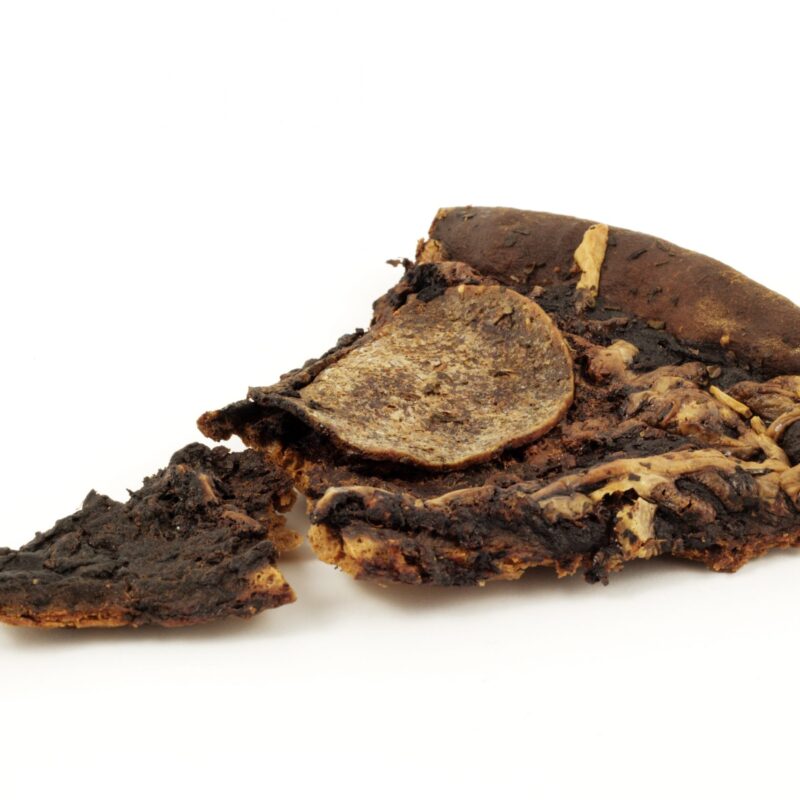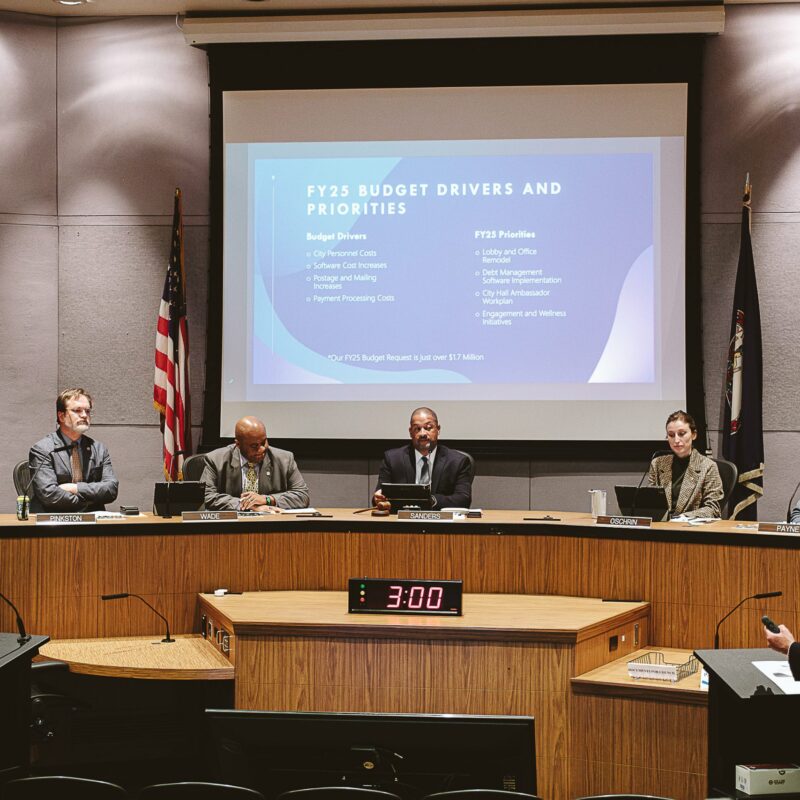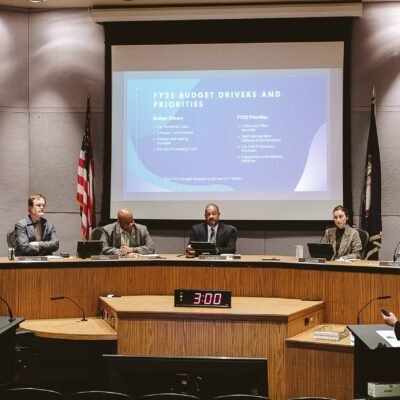It may have been a grim 2011 for Virginia Democrats overall, but Delegate David Toscano, D-Charlottesville, bucked the trend. Now, Toscano faces one of the more challenging tasks of his political career: lifting his party caucus from the depths of historically dour election results.
Toscano tallied more than 80 percent of votes in the 57th District on November 8, earning him his fourth term in the House of Delegates. However, some of his blue-striped comrades did not fare as well. In fact, in the history of Virginia’s House, Democrats have never held as few seats, 32, as they do now. Eleven days after Election Day, House Democrats gathered at their annual retreat in Richmond and unanimously chose Toscano as their Minority Leader.
“He has a lawyerly, reassuring presence on the House floor,” said Del. Mark Sickles, D-Fairfax, who will work closely with Toscano in 2012 as the new Caucus Chairman for House Democrats. “He has an ability to make a point without being obnoxious or disagreeable about it.”
From his seat across the state’s political aisle, House Majority Leader Kirk Cox feels Toscano will be a level-headed House counterpart.
“We both don’t like to surprise the other side,” said Cox, R-Colonial Heights. “We’re different philosophically on some things, but I think the tone we’ll try to set for Virginia is that we’ll try to work on things we agree on and we’ll try to be civil where we disagree.”
C-VILLE Weekly recently sat down with Toscano in his law office on East High Street to talk about his new role as House Minority Leader, as well as his outlook on Virginia’s political scene in 2012. The following is an excerpt from that conversation.
C-VILLE: How will you have to adjust your mindset to your new role?
Toscano: I’ll have to represent my caucus’ view, rather than simply my personal view of what my constituents want. So I have a fine line to walk. It’s like being a mayor, in a way. When I was mayor, there were times when I would say, ‘I’m speaking for the Council here,’ and there would be other times when I would say, ‘I’m speaking for myself.’ You have to be sure you draw that distinction.
As a result of the fall elections, Democrats hold only 32 seats in the House of Delegates, the lowest number in Virginia history. Given the challenges that go with this extreme minority, why did you accept this leadership role?
It is a great challenge and a great opportunity. It’s a great challenge because our numbers aren’t as high as they should be, but it’s a great opportunity because I can help shape the message and influence the debate in ways I couldn’t when I was just one member.
Would you characterize this role as your most important in your political career to date?
Ask me in a year. Being mayor of Charlottes-ville was quite an honor. Being elected to a seat that was once held by Jefferson is not something that you can toss away lightly. This potentially takes it to a whole different level in influencing the debate, but we’ll see if it’s going to be the best [role] of my career.
What tone do you plan to set as the leader of the Democratic Party in the House?
First, my role is to keep the Democrats in the House together, because we only have power if we’re unified. The second thing is to draw very clear distinctions between Democrats and Republicans on issues as diverse as taking guns into a bar to funding for education. The third is to present some positive proposals that potentially could be accepted by Republicans or that can win the hearts and minds of the public and influence the legislative process. We are not going to be the party that sits back and says ‘no’ to everything.
You talk about unifying the Democratic caucus. Within Virginia’s Democratic Party, there’s such a diversity of political views. How will you unify them?
We have a common set of principles that we can organize around, and we’re going to talk about that throughout the [General Assembly] session and beyond. I’ve talked about Democrats being the party of jobs, economic opportunity, and the middle class. That’s what we’ve been about for a century. We need to talk about how we are the party of education. That we believe in science. That we’re the party of diversity and the party of fiscal responsibility. The last President to balance the budget? Bill Clinton, a Democrat. And [former governor] Mark Warner came in and bailed the state out of a huge fiscal challenge that was left by his Republican predecessor. We need to grab that mantle and claim it as ours. Finally, we’re the party that helps people in need. We’re going to defend the shredding of the social safety net.
What will be your No. 1 policy priority?
Education funding. This is the year that we re-benchmark for Standards of Quality. The long and short of it is: the state promises to provide assistance to school divisions based on these standards. Every two years, we re-benchmark and ask: What’s happened with inflation? What’s happened with wages? That generates a dollar figure that gets allocated across the school division. My thinking is that Republicans are going to say that there is not enough money to provide what is needed, and that’s where the fight will come.
To what extent do you see Republicans’ strong showing this November as a bellwether for 2012?
One of the reasons we are now 32 seats [in the House] has to do with redistricting, which was controlled by the Republicans. We’ve known for a while that our numbers were going to drop pretty precipitously, and it was only somewhat due to the attitude of the electorate. It had a lot to do with how the districts were drawn; they redistricted in a way that made it very difficult for Democrats to compete.
Also, the attitude over the last two election cycles has been very anti-government and very anti-incumbent, and I actually think that’s starting to change a little bit now. I think the economy is starting to pick up, and people are a little bit more optimistic. Throw into the mix the fact that the voter turnout will be higher and more Democratic, and we’ll have to wait and see.
How important will Virginia be to the national political landscape in 2012?
I think it’ll be tremendously important. Between the Kaine-Allen race and the Presidential race, this is going to be a hotbed for political activity. It’s going to be an incredible election cycle for Virginians. You’ll see the president here a lot, and in the Kaine-Allen race, they’ll spend a lot of money and there’ll be a lot at stake. And if [Governor] McDonnell somehow ends up on the [national] ticket, you increase the interest dramatically.
Do you think that’s a possibility?
I think it’s a possibility. He’s been running for vice president for the last six months.





